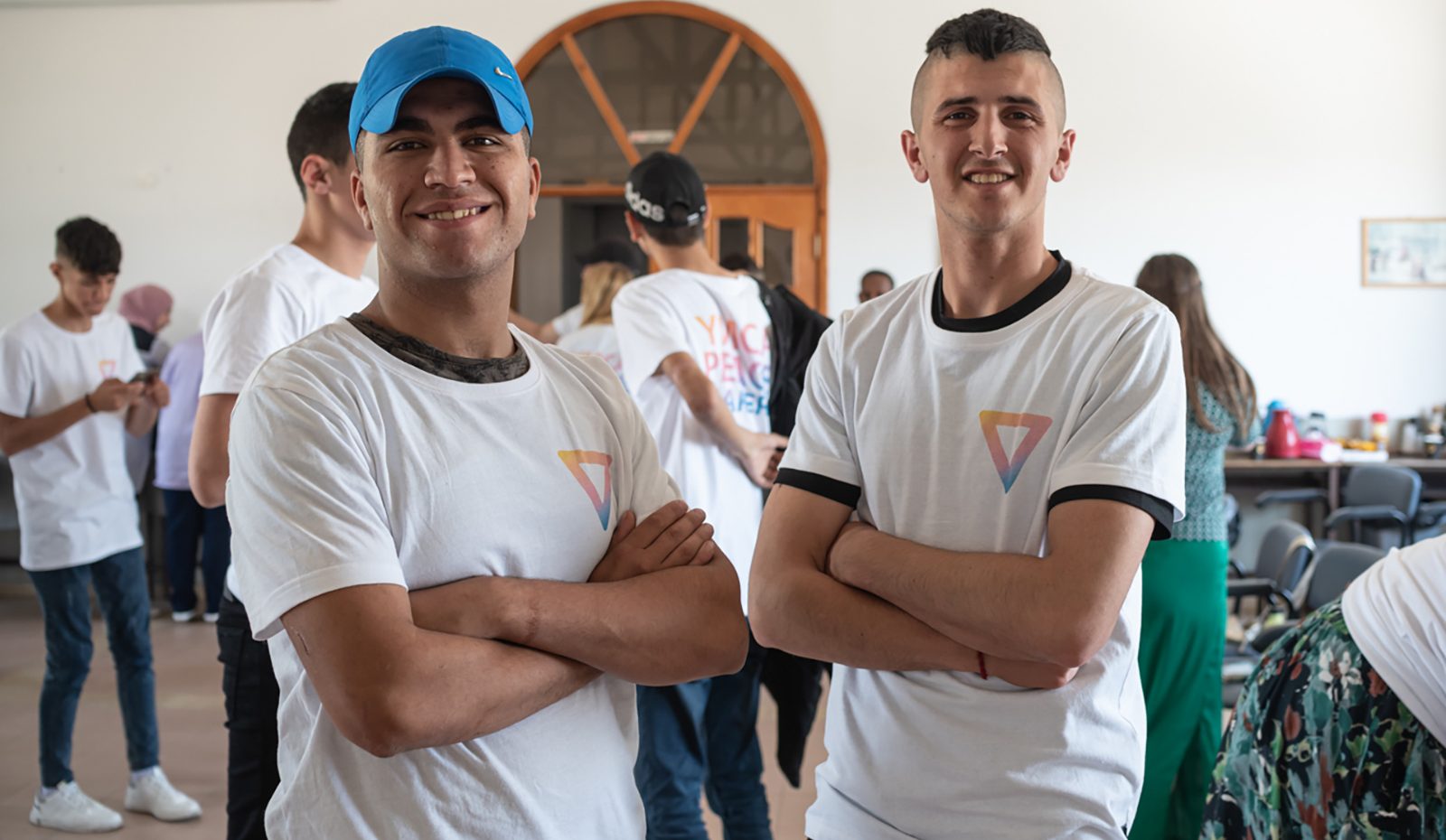Psychosocial support and community initiatives in the West Bank

The YMCA partnership supports vulnerable young people to integrate into society and encourages them to contribute locally to peace in the West Bank.
21.8.2023
Daniela Miller | Martiina Woodson
The need for psychosocial support and individual counselling is significant
In Palestine, children and young people face challenges in their lives on a daily basis. The Israeli occupation is constantly present in the Palestinian territories, and soldiers and checkpoints are part of the everyday occurrence. Growing up in the midst of a conflict affects the lives of all Palestinian children and young people, but more seriously it affects those children and young people who get arrested. The maximum duration of administrative detention is six months, but it may be extended indefinitely. Young people returning from arrest and detention have more mental health problems than their peers. It has also been difficult for young people to continue their education after having been detained. The risk of exclusion is high, especially if the young person isolates himself from his family. In the most serious cases, this development can lead to a mentality of retaliation and hatred.
The first uprising changed the needs of young people in the West Bank
We support the East Jerusalem YMCA (EJ YMCA) and its Rehabilitation Programme, which has been running in the West Bank since the late 1980s. During the first Palestinian uprising (Intifada), the EJ YMCA’s work found that social upheavals had a significant impact on the mental health of young people. The overall well-being of young people required the provision of psychosocial support, in addition to sports and leisure activities. Psychosocial rehabilitation has been intended to encourage young people to return to school or find employment.
The importance of psychosocial support is now better understood
The Rehabilitation Programme provides particular support for young people who have experienced political violence and for young people with disabilities. When the programme started, there was a preconceived notion of mental health challenges in Palestine and a lack of recognition of mental health disorders. Today, there is a deeper understanding of mental health problems, particularly among vulnerable children and adults.
Ayat Tamini, the programme’s psychosocial counsellor, says that sometimes parents themselves approach the YMCA to ask for help for their children. Tamini points out that support for families is also essential. This is why the programme, supported by YMCA Finland, also offers psychosocial counselling to young mothers in groups.
Young people as part of society
Youth unemployment contributes to shading the future prospects of young people and increases the risk of exclusion in an occupied territory. Tamini stresses the importance of a holistic approach to young people’s well-being – in addition to psychosocial support, the programme encourages young people to think about their future and, for example, to return to education or start vocational training. Counsellors aim to help young people in finding a path that interests them, thus ensuring commitment to their future plans. Going to school or pursuing a profession gives vulnerable young people an opportunity to build social relationships and participate in society.
In Palestine, peace can be promoted at community level
In recent years, the Palestinian Territories have seen progress in the realisation of the rights of people with disabilities, but the needs of young people who have experienced political violence have been largely overlooked in policy-making. There are also very limited opportunities for Palestinian youth to volunteer. NGOs operating in a fragile context are predominantly focused on meeting the basic needs of the population. On the other hand, restrictions on movement in the area limit the opportunities for young people to volunteer.
As part of YMCA Finland’s development cooperation programme, young people are offered opportunities to experience a sense of community through YMCA Peacemakers groups. In these groups, they experience peer-to-peer interaction, learn more about their rights and opportunities to make a difference for peace. By taking action locally, young people learn that small but grassroots actions can contribute to the realisation of Palestinians’ rights. According to Tamini, it is particularly important to support young people who have experienced hardship to take peaceful initiatives.
–The project will help us to help young people to organise themselves in constructive advocacy and to help them make their voices heard.
Palestinian young people promoted community initiatives that are important to them
Living in the occupied Palestinian territory, peace is a complex concept and often perceived as an impossibility. At the same time, peace is being built every day in our daily lives. In 2022, Palestinian YMCA Peacemakers youth carried out four community initiatives in three cities. The initiatives selected issues important to each group that affect peace at the community level.
One of the groups promoted the rights of the visually impaired in Jenin and got at least 10 restaurants to prepare menus with braille. The groups in Nablus and Hebron, on the other hand, sought to promote, among other things, the employment of young people with disabilities through meetings with representatives of professional institutions and authorities, and to influence the access of older young people to further education.
In Palestine, providing a vision for the future in the face of decades of conflict and occupation is not a simple task. However, the YMCA strongly believes that maintaining hope improves the chances of living constructively under occupation, even if there is no solution to the conflict in sight. Meeting young people as individuals is invaluable to their well-being. Community initiatives, on the other hand, offer young people a way to promote peace in their own city, on issues that are important to them. Together they can build hope for a better future.
Contact us
Daniela Miller, Programme Planner, YMCA Finland, daniela.miller@ymca.fi +358 400 688 650
Sandy Jarayseh, Operations Unit Coordinator, East Jerusalem YMCA, sjarayseh@ej-ymca.org
Our Youth, Peace and Livelihoods Development Cooperation Programme aims to improve local living conditions and promote livelihood opportunities and peace-building skills for young people. The programme will be implemented with YMCA partners in Ethiopia, The Gambia, Kenya, Lebanon and Palestine 2022–2025, with funding from the Finnish Ministry for Foreign Affairs.






